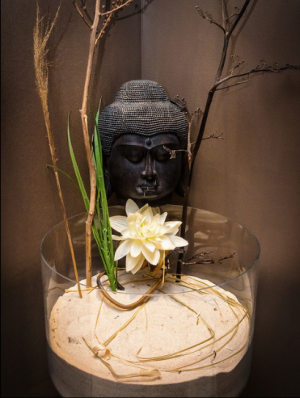Feng Shui is more than just rearranging furniture, it’s a lifestyle. And lifestyles involve mindsets or concepts that are prevalent. Feng Shui experts just say no to some things without reason. Most of the things they do come with a line of reasoning that may not necessarily be embraced by many people.
Nonetheless, it is still a point of view that among other things, require careful consideration and thought. So what are the thoughts that prevail on the onset of Feng Shui? Here are just some of these prevalent concepts that a Feng Shui enthusiast or researcher may find useful.
Sense of Balance
The number one thing that Feng Shui promotes is balance. This balance comes in many forms, in the color arrangement, in the spatial factors up to the numbers that concern your working space or environment. The balance is more promoted by the five Earth elements of Feng Shui and the bagua, which is designed symmetrically and with complete reference to the different elements of the earth by Feng Shui standards. The standards of Feng Shui is made customized in every person, but it all boils down to having the right sets of things that complement and balance each other out.
Sense of Positivity
A sense of positivity is also what Feng Shui promotes. Positive energy is the thing most sought after by people who try to get the services of Feng Shui consultants. This positivism needs to be maintained. Conversely, it wards off all the forms of negative energy that may come in a given space. This is why there are charms that help cure the bad luck in a given place, especially those which have been established without guidance of Feng Shui.
A Natural Inclination for Beauty and the things that Promote It
Beauty in symmetry and symmetry in beauty is one of the core concepts of Feng Shui. It appeals to the physically inviting, and also adheres to fighting for beauty and balance in things. Feng Shui, in some ways, is a celebration of beauty in design and other physical elements of the space being designed.
Love for Your Environment
Feng Shui promotes the careful consideration of the environment before establishing places. Good Feng Shui respects the elements of the earth and makes the Feng Shui enthusiast more mindful of their surroundings. They don’t just work instantly in any oppressive place, but strive to remove any existing negativities in the environment.
Love for Self
The love for self is also promoted by Feng Shui. You will detect energy based on what generally feels good to you. Love for self involves not subjecting yourself to oppressive places or harboring negative energies that can be counter-productive to your different activities.
Dreaming big and making the environment jive with that dream
Finally, Feng Shui is more anchored on the greater scheme of things. When you have a dream and you intend to fulfill it in numerous ways, the best way to start is to have an environment that embraces those dreams. If you dream big and work hard, but your environment cancels all the things that you are striving for, it will be a very difficult task for you.
Feng Shui ensures that there is alignment between the things you want and the things that are manifested in the objects you see everyday.


